
The Colorado Capitol was filled with new faces on Monday morning when lawmakers returned for the start of the legislative session. More than a third of the legislature’s members are new to their jobs.
Half of the representatives in the House are first-time lawmakers — 20 of the chamber’s 46 Democrats and 12 of its 19 Republicans are new.
While there’s always turnover after an election year, this is an unusually large number of freshmen. It’s due in part to redistricting, which redrew the state's political lines and reshuffled the districts that lawmakers represent.
Many lawmakers were also up against term limits in 2022; Colorado only allows lawmakers to serve eight consecutive years in each chamber. Some retired, while many in the House ran for new seats in the state Senate. And some changes were unexpected — brought about by resignations and, in one case, a death.
Former Democratic Rep. Adrienne Benavidez stepped down after running unsuccessfully for Speaker of the House. Fellow Democratic Rep. Tracey Bernett resigned on Sunday just hours before lawmakers gaveled in. She is facing criminal charges over allegations that she made false claims about where she lived.
The Senate only has two first-time lawmakers; all of its other new members had previously served in the House.
All the fresh faces are set to bring new ideas and styles to the Capitol. Their impact was evident out of the gate Monday, when two freshmen House Republicans bucked Colorado’s tradition of only nominating a single candidate for Speaker. Normally, all of the lawmakers support the nominee who is selected by the majority. Instead, the freshmen Republicans urged their colleagues to vote for a Republican alternative (which eight GOP members did.
CPR chatted with some of the new lawmakers about what brought them to the Capitol and what the hope to accomplish there.
Democratic Rep. Stephanie Vigil, 38, of Colorado Springs is a gig worker who works with third-party delivery platforms, among other jobs: “I do a little of this and a little of that.”
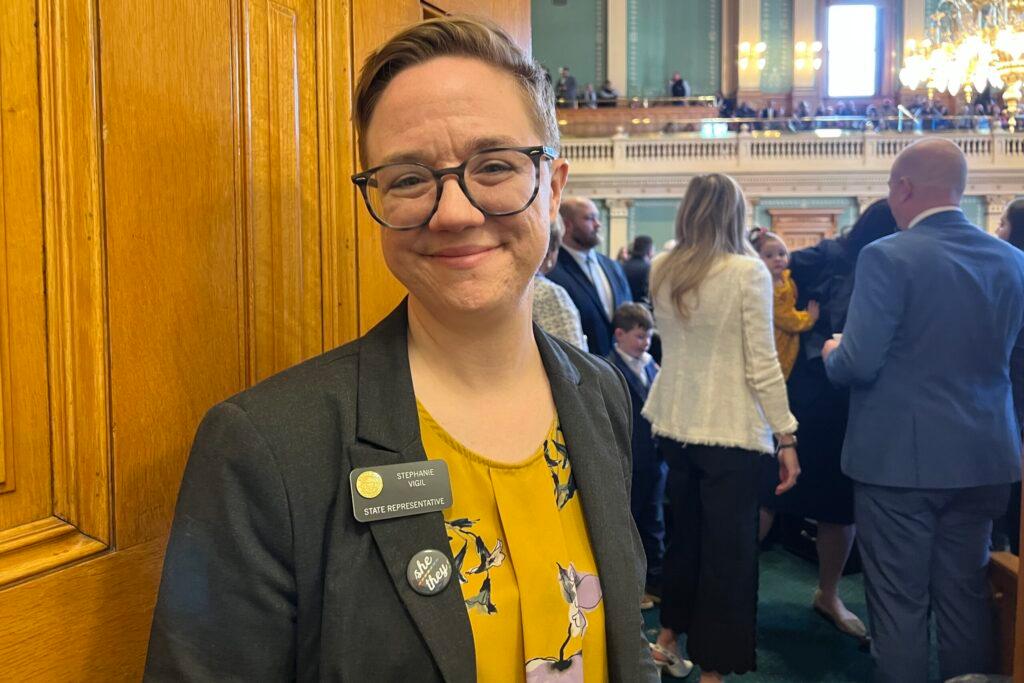
What's one thing you feel you bring to the legislature, in terms of your background, experience or ideas?
I don't come to this with a lot of the formal credentials that I think people usually expect from their elected officials. I'm a lot more down-to-earth. I bring a lot of lived experience that we don't always have in government. I'm a survivor of childhood abuse. I've been disabled before. I've had a lot of inpatient mental healthcare, so I have some insight there that I think we're often missing. And honestly, I'm a poor, working-class citizen and getting into government with that perspective is, I think, really important — so that everybody is being heard.
What's the thing that has surprised you most since being elected?
It turns out there's a way to amend an amendment — and before you can approve the amendment, you'll have to talk about how you're going to amend it. And I was kind of thinking, ‘oh, this is, this is inception. How many amendments deep does this go?’ So, I really love the democratic process though. I love digging into all of those little ways that we can build consensus.
What's one policy you're most excited to work on?
I'm gonna be working on some renter's rights, bringing some parity to renters, and honestly, just ensuring that people can stay housed and that the market doesn’t trample people… I can't talk too much about the details of the bill because it's in (the drafting stage), but I am working on a bill that will be centered more around the application process.
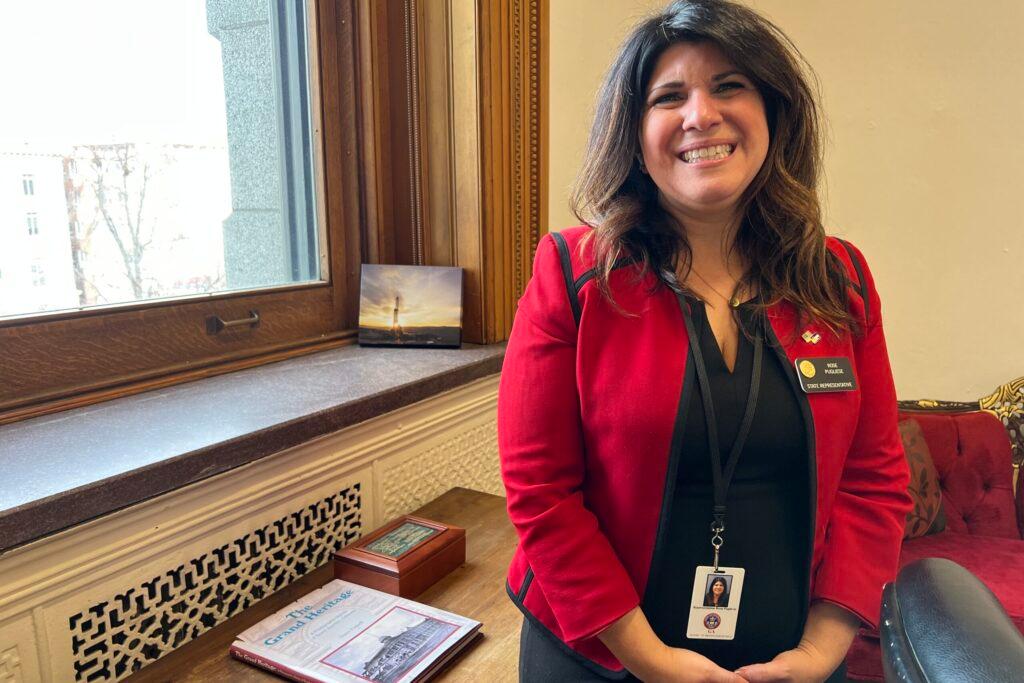
Republican Rep. Rose Pugliese, 44, of Colorado Springs is the new assistant minority leader in the state House. She’s a former Mesa County commissioner who is now the county attorney for Prowers County in eastern Colorado: “I bring local government perspective.”
What is one thing that as you arrive in this chamber, you feel like you're bringing, whether it's from your experience, your background, anything else?
I feel like I bring two things. One, I bring a local government perspective, so I'm always asking the questions like, this is a great law, what does implementation look like? And I think we need to have those conversations to make better laws. And then the second thing is my grassroots network. I ran the National Popular Vote repeal with Mayor Don Wilson (of Monument) two years ago. I think just bringing that grassroots network, making sure people are engaged, is really important for the betterment of all of Colorado.
What's surprised you most, if anything, since being elected?
Just how quickly things are going. … When you really sit down and have to write a bill, it's really just interesting how lengthy the process is.
What is one single policy or bill that you're excited to be working on?
Right now, I'm working on bills that help strengthen the family. And so my pre-file bill is a bill around kinship placement to make sure that children have the ability to stay within (their) family as much as possible (if they are removed from their parents’ or guardians’ care.) It really benefits children and the family. And then, we just don't have enough foster homes, so it opens up foster homes for children who don't have any family.
Democratic Rep. Elizabeth Velasco, 35, of Glenwood Springs owns a small business doing Spanish translation and interpretation. She is also a wildland firefighter and has worked in public information roles in firefighting: “We just kind of dive right in and hit the ground running.”
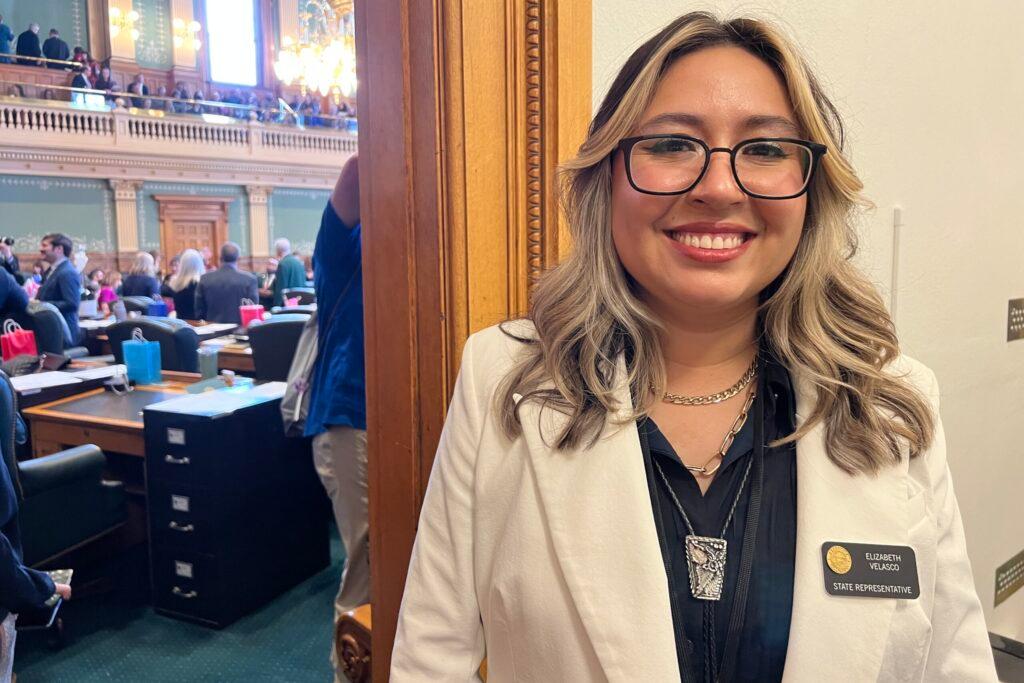
What is one thing that you feel like you bring to the legislature?
I feel like I'm bringing a lot of different perspectives to the legislature, you know, from being a New American to being the first Latina from the Western Slope to be elected. Also I'm an environmentalist and I have on-the-ground experience of serving community and making sure that we don't leave anyone behind. (Velasco and her family came to the U.S. from Mexico when she was 15, and she became a U.S. citizen six years ago.)
What has surprised you the most since being elected?
The thing that surprised me the most was that we won (the election) on a Tuesday and then Thursday we were here in Denver, electing our new House Speaker and our new leadership. And I've been working the whole time — you know, we kind of just dive right in and hit the ground running and I’m definitely very excited to continue now with my official badge as a state representative.
What are you most excited to work on?
I'm very excited to work on emergency management and the way that we respond to emergencies. I've worked in the incident command system and incident management and I know that we're very good at the response, and we need to keep working on being proactive — to make sure that we include everyone from our disability community or ranchers or immigrants, and not leaving anyone behind.
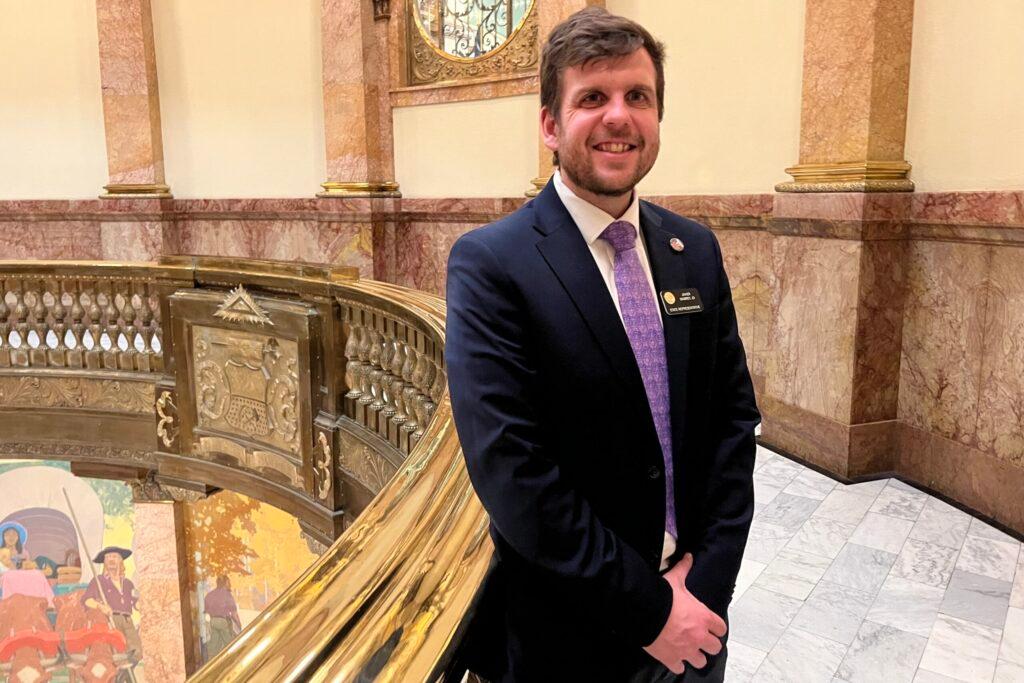
Democratic Rep. Javier Mabrey, 32, of Denver is an eviction defense attorney who co-founded the Community Economic Defense Project: “I haven’t been surprised yet.”
What is one thing you feel like you bring to the legislature?
The reason why I ran has to do with my life experience. I was raised by a single mom whose only source of income was our Social Security disability check, and we were poor. We dealt with housing instability and homelessness. I used that experience to go to law school and to try to prevent new cases of homelessness, and that's what I want to be focused on here in the building.
What's one thing that surprised you since getting elected?
(Laughing) I haven't been surprised yet, honestly… Over the past several years I've been up here in the Capitol, fighting to get legislation passed for renters. And so I've had plenty of experience on the other side of the glass, and I kind of knew what was coming.
What’s one policy you’re looking forward to working on?
My pre-file bill is about capping the price of EpiPens. So EpiPens cost about $625 for a pack of two. They cost drug manufacturers about $3 to make and over the past 20 years, the price of them has gone up 629 percent. The cost of producing it has remained the same, so Coloradans shouldn't be subject to that sort of price gouging in the medical space.
Republican Sen. Byron Pelton, 47, of Sterling is a master electrician and runs a small calf-cow operation with his wife. He was a Logan County commissioner before resigning to join the legislature. “I’m excited about trying to do something with crime and drug abuse.”
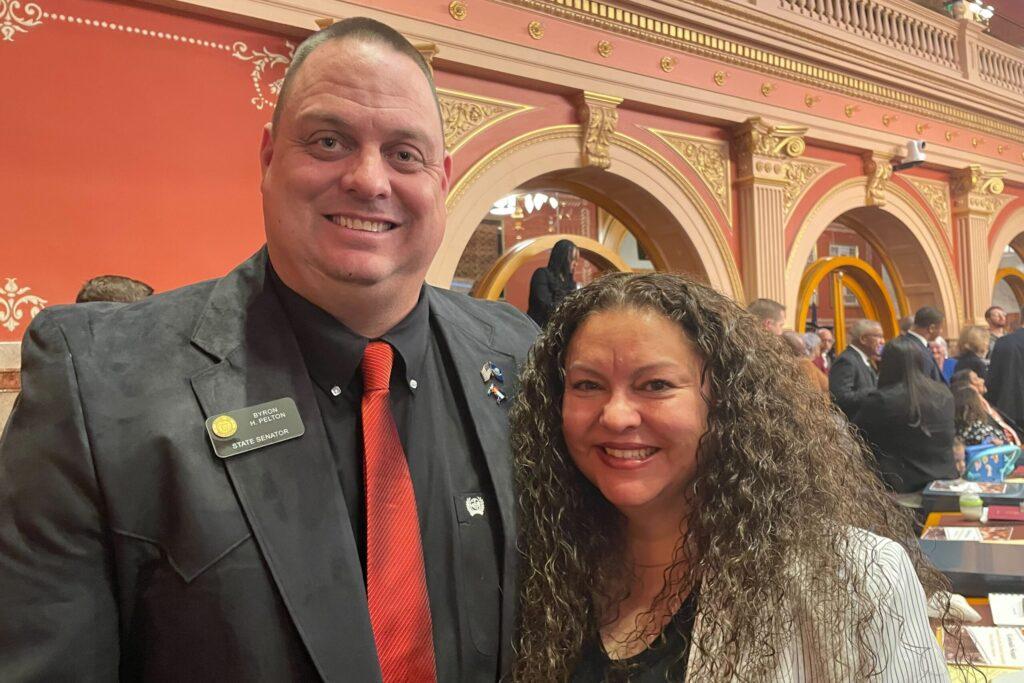
What's one thing you feel you bring to the legislature, in terms of your background, experience or ideas?
Local government experience. Being a commissioner for six years I think brings a lot of things to the table that and is what is needed in the legislature.
What's the thing that has surprised you most since being elected?
I was just surprised that there wasn't more knowledge about local government in the legislature. Like, you know, they don't always know every nuance of local government. Just a little surprised by that, but that's all.
What are you most excited to work on?
I'm most excited about trying to do something with the crime and the drug abuse that's happening in Colorado… It's been going on for the last 20 years. And in the northeast corner of the state, it's just getting worse and worse and worse, especially with our methamphetamine issue that we've dealt with, and crime starting to reach us. And also the fentanyl stuff that's going forward.
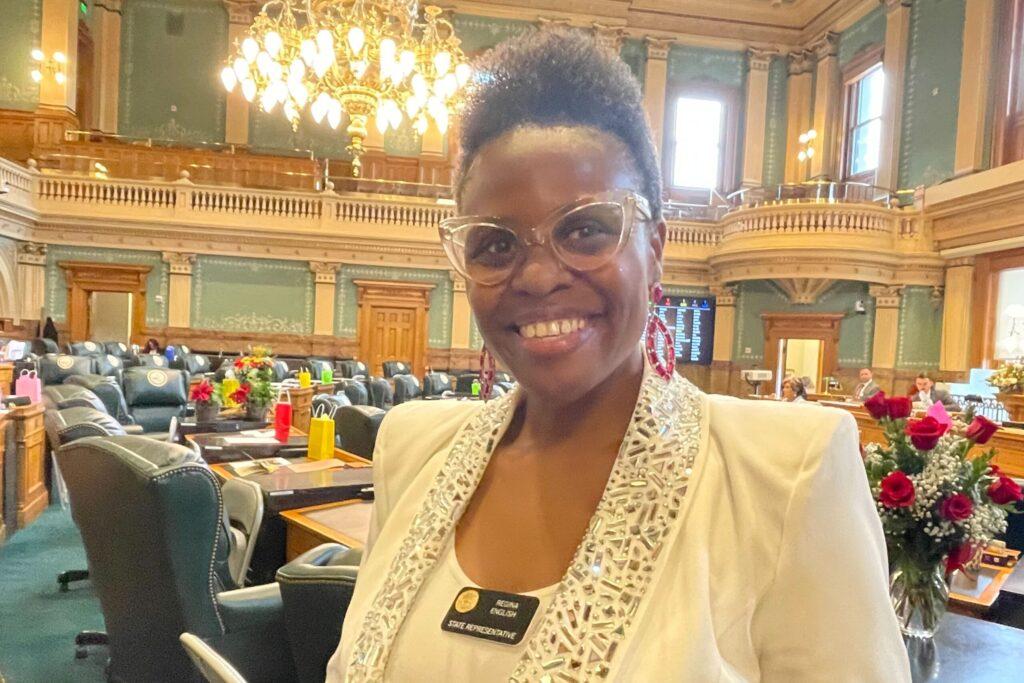
Democratic Rep. Regina English, 50, of Colorado Springs sits on the board of education for Harrison School District 2. She’s also a life coach, runs a non-profit leadership program for young people and a scholarship pageant: “Education is near and dear to my heart.”
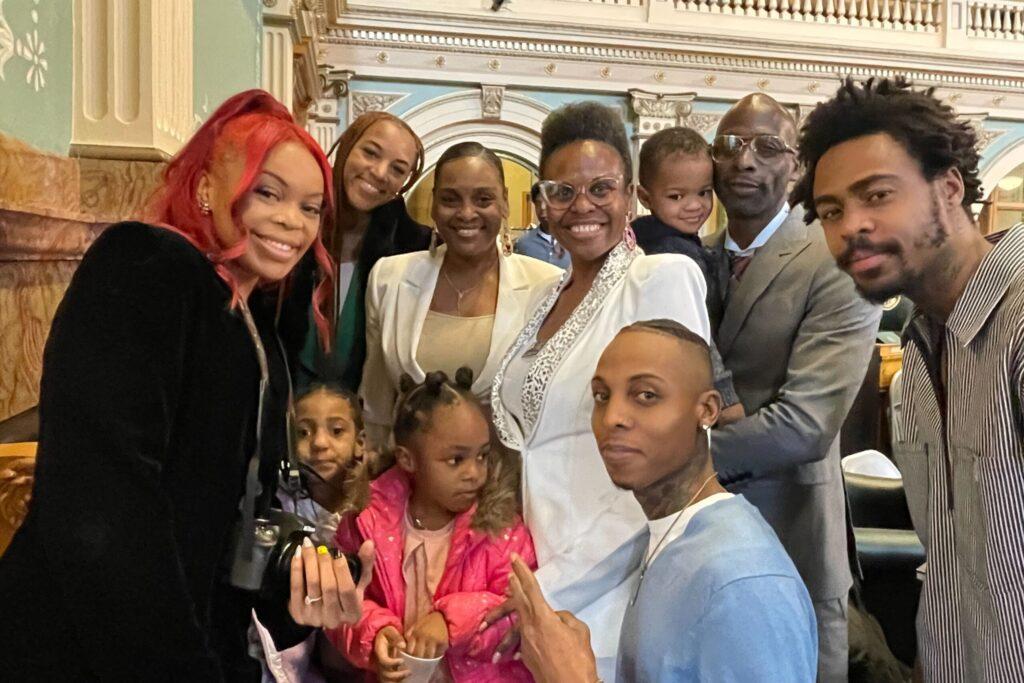
What's one thing you feel you bring to the legislature, in terms of your background, experience or ideas?
I'm able to make hard decisions and I'm a collaborative decision maker and a transformational leader, which is very important in this role that I'm in, because every perspective at the table is important and every perspective matters. And that's how we get a balance down of leadership.
What's the thing that has surprised you most since being elected?
I can't say anything has surprised me just yet, but I'm bucking up for the ride cuz we're just beginning.
What's one policy you're most excited to work on?
I'm most excited to work on education. Education is near and dear to my heart. Definitely women's rights, reproductive rights, that's definitely important to me as well. I just don't believe that government should be so involved in the decisions that women make about their bodies. So I'm very excited to work on some legislation, this upcoming legislative session for that and amongst many other pieces of legislation. But most of all, I'm just excited to be here so that we can ensure that all Colorados have a better quality of life through effective legislation.
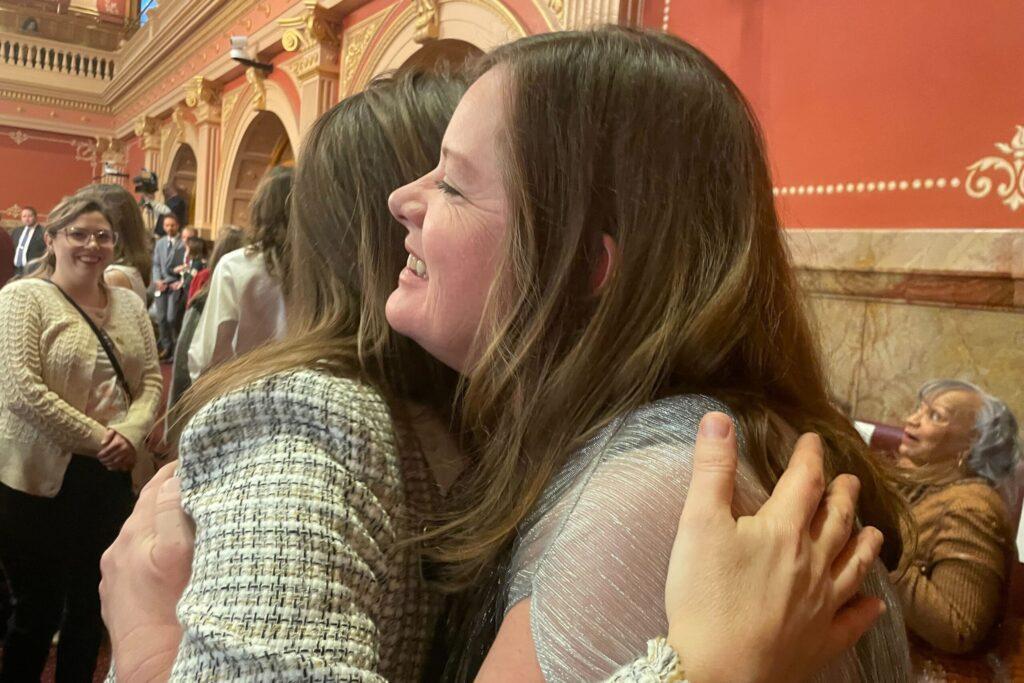
Democratic Sen. Janice Marchman, 49, of Loveland is a middle school math teacher: “I’m very data-driven.”
What's one thing you feel you bring to the legislature, in terms of your background, experience or ideas?
I'm very data-driven. I have an engineering degree, it's a systems engineering degree, so I like to look at data to determine what the right policy is going to be. I hope to incorporate that data-based approach toward what I'm doing. As a teacher, I really feel like I have a window into the needs of our working families, and so I hope to bring that perspective to the legislature.
What's the thing that has surprised you most since being elected?
I will tell you, I didn't know that you had to have all five of your bills due (in) like mid-December… I'm running bills that are constituent-led and so I've been doing a lot of work since I've been elected just to get these bills ready to go.
What's one policy you're most excited to work on?
It is going to be an opportunity for state-licensed mental health professionals to treat students in schools. Currently, you have to have a [Colorado Department of Education] licensure to be able to work with students and nobody is being treated in schools because a CDE licensure is required. This will allow a school district to directly hire therapists to be in schools…. The hope is that everywhere, but especially in rural areas where it's harder to find school-based counselors, we can utilize the youth counselors and therapists that are already licensed and just be able to see the students right in the schools.
Republican Ken DeGraaf, 54, of Colorado Springs is a commercial pilot who retired from the Air Force: “The government does not solve problems.”
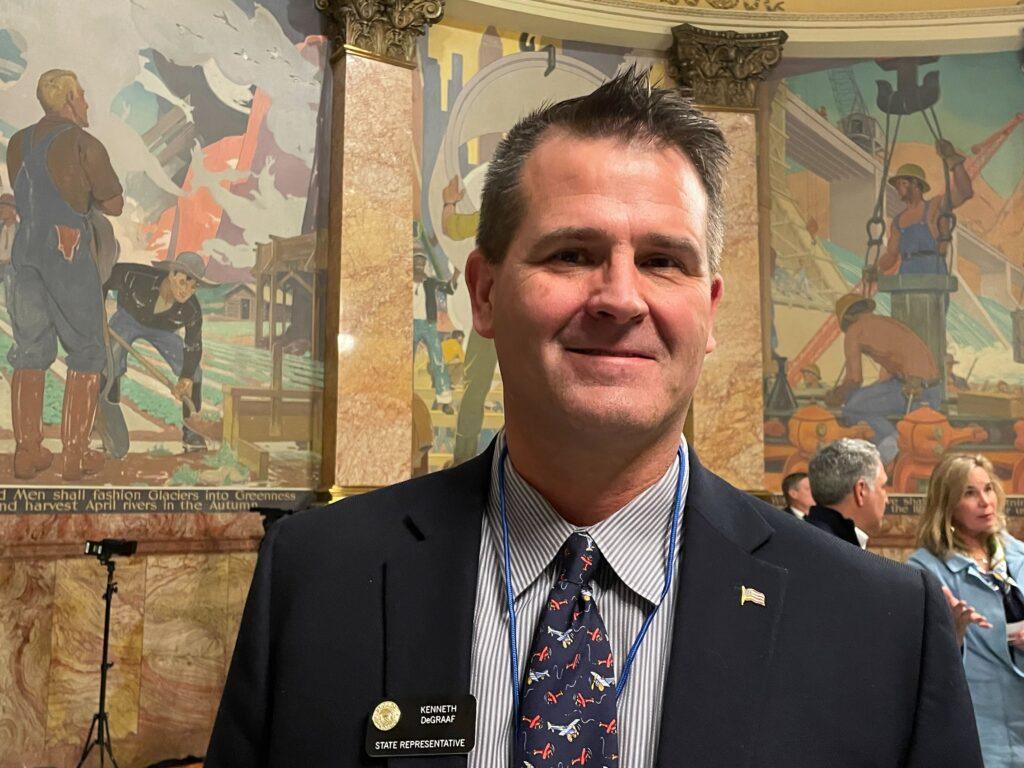
What's one thing you feel you bring to the legislature, in terms of your background, experience or ideas?
I have about 27 years in the Air Force, and I have two degrees, from the Air Force Academy, and a master's from Columbia University in structural dynamics. So I think I bring a technical ability that is often lacking when we're dealing with things like science ... I have 20 moves, I've lived in three different countries. I've experienced firsthand the Medicare system, the free, state-sponsored, the single-payer health care. And I know firsthand what a disaster that is.”
What's the thing that has surprised you most since being elected?
There's no problem the government can't make worse with the solution. So every single thing that is a “proactive,” “positive” thing here, most likely will have negative repercussions, and it will lead to multiple bills down the road that we need to solve. The government does not solve problems. The government does not elevate people. The only thing that the government can do is systematically subjugate people and leave one group standing a little higher than the other. It's the age-old method of tyrants. If one person sticks their head above the crowd, cut it off. Right?
What's one policy you're most excited to work on?
I think (in terms of) stopping something from happening, (that) would be the gun grabs and helping and hoping that the Democrats can understand that the direction that they want is historically one of subjugation. The constitution is quite clear that the right to keep and bear arms shall not be infringed. That wasn't for hunting. That was to protect us from the government.
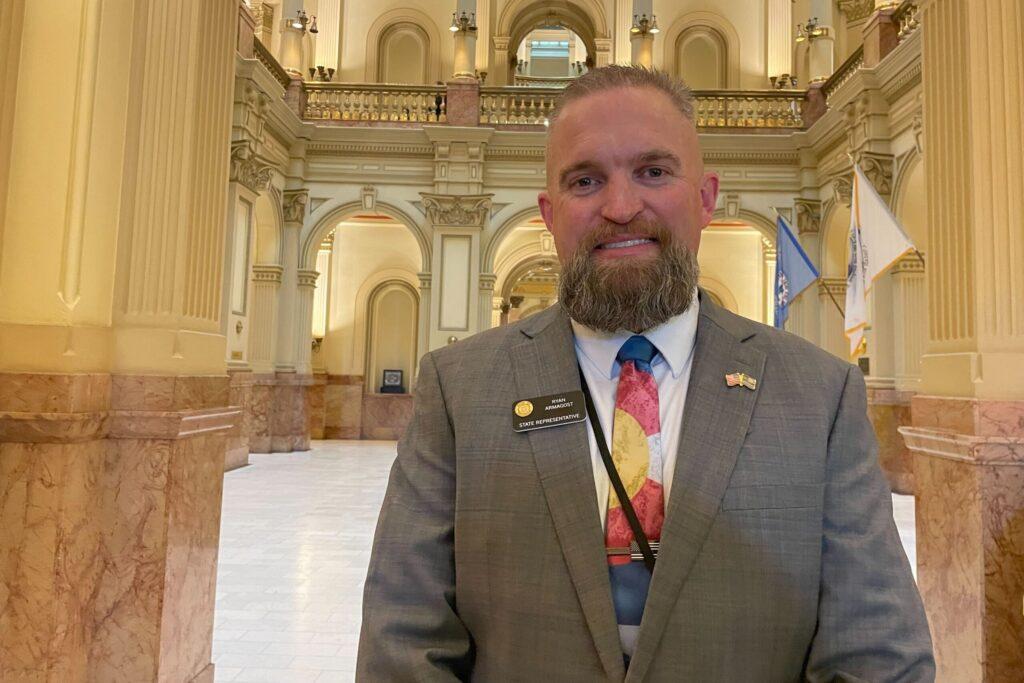
Republican Ryan Armagost, 44, of Berthoud spent 22 years in the military and worked for a decade with the Larimer County Sheriff's Office. He retired from both and now works in private security and firearms training: “We are not here for the money.”.
What's one thing you feel you bring to the legislature, in terms of your background, experience or ideas?
What motivated me to come into politics is just being a voice for the people that they don't have a voice. Military seems to be a very thankful job — you can't go in uniform anywhere without getting a ‘thank you for your service.’ Law enforcement doesn't get the same luxury. It is the most thankless job I can think of… I became a vocal advocate for it, but never really had a platform to talk about it publicly. But still seeing laws coming through that were further and further restricting and diminishing the abilities of law enforcement officers to keep our communities safe. I wanted to be an active member to help prevent those bills and laws going into effect and pushing for legislation that will help law enforcement and our first responders and protectors to better do their jobs to keep us safe in our communities.
What's the thing that has surprised you most since being elected?
“It is very busy… Even before you get sworn in there was a lot of work that went into preparing and getting things in order. I think quite a lot of people have a perception that anyone in politics is in it for the money. It's clearly not the case. We are not here for the money… The surprising thing for me is how many people are willing to reach across the aisle to make things work better.
What's one policy you're most excited to work on?
I want to fix Colorado's mental health deficiencies. Colorado is the worst state in the country as far as mental health, long-term treatment for mental illness. And to be able to at least start building that back up, get us near the top 10 before I can get out of (the) legislature. I'd love to be able to take part in that because as people are focusing on crime and focusing on the tools that people use in crime, whether it be a vehicle, a knife, firearm, whatever, people aren't focusing on what's behind the person committing the crime, which is usually addiction and mental illness, which work hand in hand.









